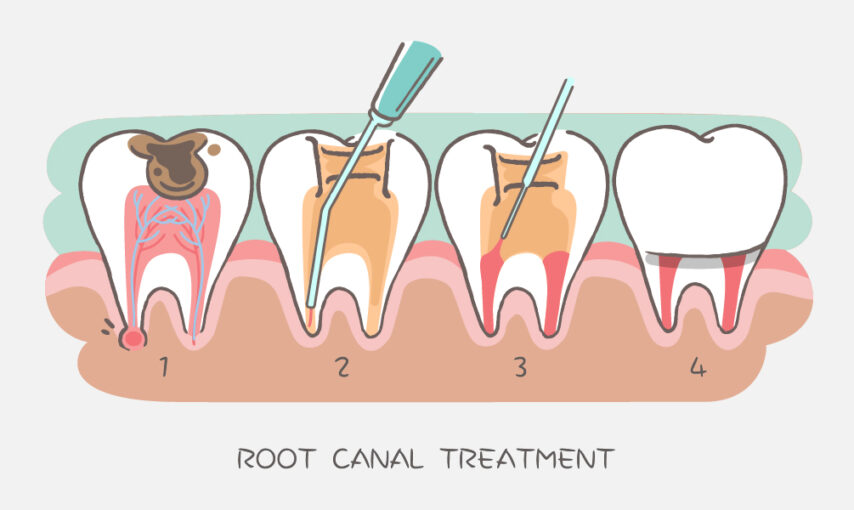It starts as a whisper—a small twinge or chill in your tooth. Harmless, right? Think again. According to a trusted dentist in Oak Lawn, ignoring a cavity can spiral fast. That quiet ache? It’s just the beginning. What happens next can hurt more than your tooth and your wallet. Let’s break it down before things get worse.
How Cavities Form
Your mouth is full of bacteria. That’s normal. But when these bacteria feed on sugars and starches, they produce acids. These acids eat away at your enamel—the hard outer layer of your teeth. Over time, this creates small holes: cavities.
Once a cavity breaks through the enamel, it creeps into deeper layers of the tooth. And that’s when the trouble begins.
Early signs include:
- White spots on your tooth
- Sensitivity to sweets, hot or cold
- A mild, dull ache
- Bad breath or a funny taste
These signs are your early warning. Listen to them.
The Early Stages: Minor Discomfort and Sensitivity
In the beginning, cavities don’t scream. They whisper. You might feel a sting when eating ice cream or notice a spot that feels a little off.
Here’s what usually happens:
- You feel mild pain or tingling when chewing
- You try to avoid chewing on one side.
- You tell yourself, “It’ll pass.”
But it doesn’t. It only gets worse. Catching a cavity early means a quick fix—often a simple dental filling service—and you’re good to go. But delay it, and things change fast.
When You Ignore It: Cavity Progression
Think of your teeth like a house. The outer enamel is your roof. If there’s a hole in the roof and you don’t patch it, rain gets in. Water seeps into the walls and floors. The whole structure weakens.
The same happens to your tooth:
- The cavity moves past the enamel
- It reaches the dentin (the soft part under the enamel)
- Pain becomes sharper more often.
- You might feel a constant throb.
Now, you’re facing a more involved tooth-filling procedure or possibly a root canal. The treatment takes longer, becomes more complex, and brings extra discomfort.
Tooth Infection and Abscess Formation
This part gets serious. If the cavity keeps spreading, bacteria reach the pulp—the innermost part of the tooth. This is where your nerves live. It hurts.
But it’s not just pain. An infection can form. Your body reacts. You might develop:
- Swelling in your face or jaw
- A bad taste that won’t go away
- Fever
- Swollen lymph nodes
At this stage, you could have an abscess—a pocket of pus under the tooth. It’s not only painful but dangerous. In rare cases, infection from an abscess can spread to your bloodstream or brain.
Consequences for Your Whole Body
Ignoring a cavity doesn’t just hurt your tooth. It can affect your entire system.
Here’s how:
- Gum inflammation can make diabetes harder to control
- Oral bacteria can enter the bloodstream.
- You might feel run-down and tired.
- Some people experience chronic headaches or jaw pain.
The mouth connects to everything. Keeping it healthy means protecting more than just your smile.
Tooth Loss and the Requirement for Costly Dental Work
When a cavity eats away too much of the tooth, it may be beyond saving. That means extraction.
And once a tooth is gone, you’ve got decisions to make:
- Implant?
- Bridge?
- Partial denture?
All of these cost more than a filling. A dentist in Oak Lawn can walk you through the options, but it’s not a road you want to go down if you can avoid it.
Tooth loss also affects how you speak, eat, and feel. It’s not just cosmetic. It changes your life.
Emotional and Lifestyle Impact
A cavity might not seem like a big deal, but it can chip away at your confidence. When pain makes it hard to eat or smile, it touches everything—your work, your relationships, your sleep.
Real-life struggles people face with untreated cavities:
- Smiling less in photos
- Covering their mouth when laughing
- Missing out on favorite foods
- Canceling social plans due to pain
It sneaks in slowly. And suddenly, you’re living around a problem that could’ve been fixed in one visit.
Preventing Cavities and Recognizing When to See a Dentist
The good news? Cavities are preventable. Catching them early makes a huge difference.
Here’s how to stay ahead:
- Brush twice a day with fluoride toothpaste
- Floss once a day—yes, really
- Cut back on sugary snacks and drinks.
- Drink more water, especially after meals.
- See your dentist every six months.
If something feels off, like a sharp twinge, dark spot, or new sensitivity, don’t wait. Even if it seems small, that little sign could be your chance to stop a big problem.
Final Thoughts
Don’t let a tiny cavity steal your comfort or your smile. Early care makes all the difference. Visit Family Dental Care today and get ahead of dental trouble. Our team is ready to help you feel better fast. Book your appointment now—your teeth will thank you. Smile brighter, live better, and take control of your dental health.


